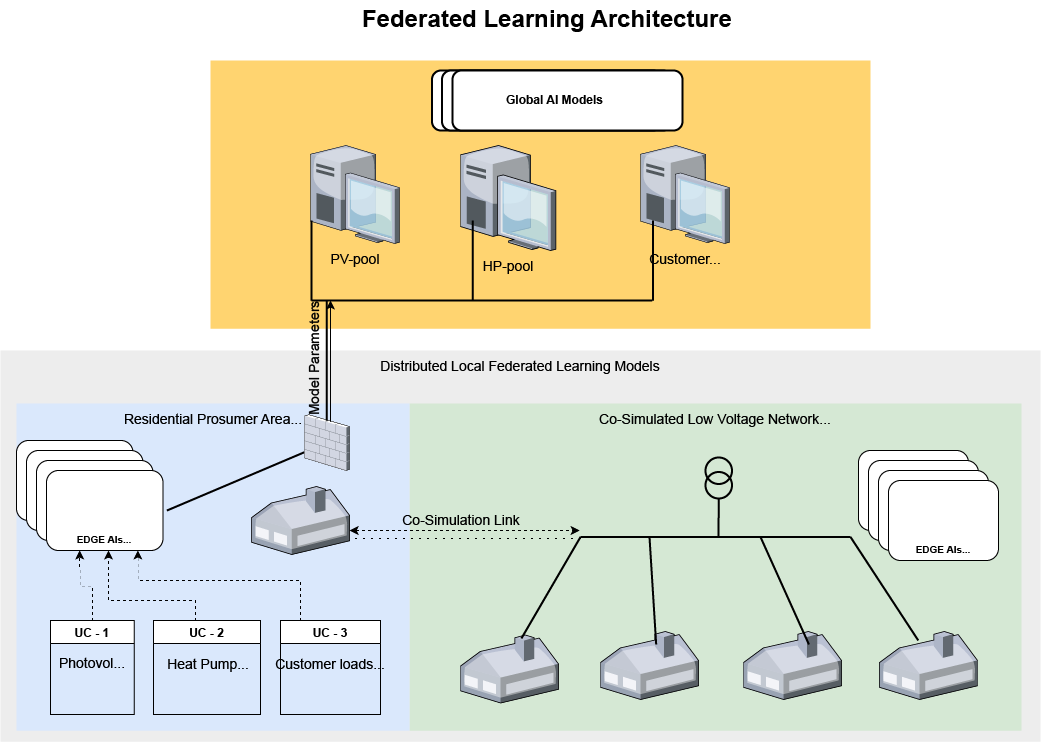Application of Machine Learning Methods on local high-resolution data from PV inverters, Smart Meters and Heat Pumps
Background
Artificial intelligence and specifically machine learning methods provide a promising approach in developing suitable solutions for integrating the increasing amount of decentralized generation, especially PV, and system components, such as EV, heat pumps and battery storage systems in the low-voltage grid. In particular, self-learning systems offer a scalable and flexible approach to different starting conditions and changing data patterns.
These methods require processing extensive data in high-resolution of the respective systems; specifically, services such as short-term forecasts of volatile renewable energy generation and demand profiles for optimizing demand response schedules or storage system operations will provide the highest performance and output with the highest resolution of time series data.
Challenges
Ensuring provision of extensive data in high resolution time series requires overcoming three challenges:
- Sufficient data transmission capacities: Data resolution plays an essential role in maximizing information gain, which is why it is important to ensure the high demands on bandwidth and connection security for data transmission are covered. Additionally, response and latency times must be agile enough to have no negative impact on short term services
- Sufficient data reliability: Centralized cloud systems come with bigger risk regarding likeliness of fault situations or loss of signal compared to local edge devices.
- Adequate data privacy and protection: Cloud-based systems used for data collection and evaluation, particularly for consumption measurements and in the form of high resolution data, come with the risk that data privacy laws can’t be respected.
Objective
The EdgeAI concept has been chosen for this project because it takes these specific challenges into account: the Edge AI concept for the direct and local application of ML methods ensures both a stable and high-resolution data connection, as well as data security.
The main objective of this project is to focus on two aspects:
1) Exploration of local high resolution data sources and directly measured data to understand:
- What insight and knowledge can be gained from high resolution time series data;
- What is the minimum data requirement analysis based on use-case KPIs;
- What is the capability analysis of existing EdgeTPU hard- and software (TFF, TF-light)
2) Development and testing of federated learning methods for EdgeAI applications for enhanced:
- Data quality management and pre-processing;
- Feature Engineering and design;
- Semi-supervised learning methods.
![[Translate to English:] Power System Digitalisation Symbolfoto: Das AIT ist Österreichs größte außeruniversitäre Forschungseinrichtung](/fileadmin/_processed_/3/6/csm_BWO-2019-06-19-AIT-0023__web_header_9c7b38a01c.jpg)





